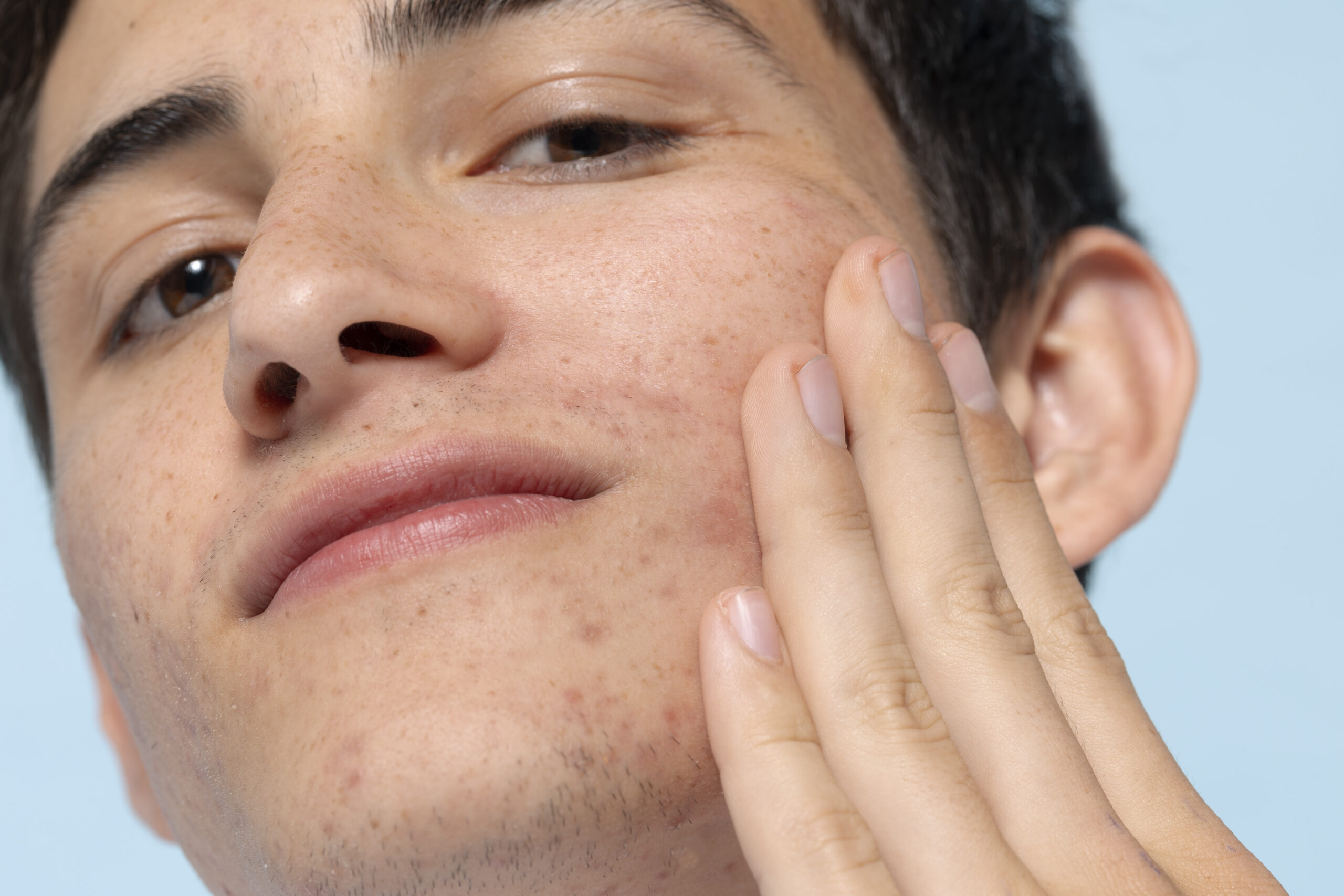Acne is a common skin condition that affects millions of people worldwide. Understanding its causes can help in managing and preventing breakouts. Here, we delve into the various factors that contribute to the development of acne. buy accutane online solution for acne on Dosepharamcy.
Hormonal Changes
Hormonal fluctuations are one of the primary causes of acne. This is why acne is so prevalent during puberty, pregnancy, and menstruation. Androgens, the male hormones present in both men and women, increase during puberty, causing the sebaceous glands to enlarge and produce more sebum (oil). Excessive sebum can clog pores, leading to acne. In women, hormonal changes related to the menstrual cycle, pregnancy, and the use of birth control pills can also trigger accutane 40 mg.
Genetic Factors
Your genetic makeup plays a significant role in acne development. If your parents had acne, you are more likely to experience it as well. Genetics can influence the size and activity of sebaceous glands, as well as how your immune system responds to bacteria and inflammation in the skin.
Bacteria
The bacterium Propionibacterium acnes (P. acnes) is commonly found on the skin. When hair follicles become clogged with oil and dead skin cells, this bacteria can multiply rapidly. This overgrowth triggers inflammation, leading to the formation of pimples. While P. acnes is a normal part of the skin flora, its excessive presence can exacerbate acne symptoms.
Diet
There is growing evidence that diet can influence acne. High glycemic index foods (like sugary snacks and white bread) and dairy products have been linked to an increase in acne. These foods can spike insulin levels, which in turn, increases androgen hormones and sebum production. Some studies suggest that certain foods may cause inflammation throughout the body, including the skin, potentially worsening acne.
Stress
Doesn’t directly cause acne but can aggravate it. Stress triggers the release of cortisol and other stress hormones, which can increase oil production and lead to inflammation. People under stress may also neglect their skincare routine or engage in behaviors like picking at their skin, further exacerbating the problem.
Skincare Products
The use of comedogenic (pore-clogging) skincare and cosmetic products can contribute to acne. Ingredients like mineral oil, lanolin, and certain types of silicones can clog pores and lead to breakouts. It is essential to use non-comedogenic and oil-free products, especially if you have acne-prone skin.
Environmental Factors
Environmental factors such as pollution and humidity can affect your skin. Pollution particles can clog pores, while high humidity levels can increase oil production. Both can contribute to the development of accutane generic. Additionally, certain climates might lead people to sweat more, which can combine with oil and bacteria on the skin, leading to clogged pores and breakouts.
Medications
Certain medications can cause acne as a side effect. These include corticosteroids, lithium, and some anticonvulsants. If you suspect that your medication is causing acne, consult your healthcare provider for alternative treatments.
Physical Irritation
Friction or pressure on the skin from helmets, backpacks, or tight clothing can lead to a type of acne called acne mechanica. This type of acne occurs due to the combination of heat, pressure, and the skin’s contact with objects that cause irritation.
Insufficient Skincare Routine
An inadequate skincare routine can also contribute to acne. Not cleansing the skin properly can lead to the accumulation of dirt, oil, and dead skin cells, which can clog pores. Over-washing or using harsh scrubs can strip the skin of its natural oils, leading to increased sebum production as the skin tries to compensate for the loss of moisture.
Underlying Health Conditions
Certain health conditions can predispose individuals to acne. Polycystic ovary syndrome (PCOS), for example, is a hormonal disorder common among women of reproductive age that can cause severe due to elevated levels of androgens.
Prevention and Management
Understanding the multifaceted causes of acne can guide effective prevention and treatment strategies. Here are some general tips:
Skincare Routine
- Cleanse Gently: Use a mild, non-comedogenic cleanser twice daily to remove dirt, oil, and makeup without over-drying your skin.
- Exfoliate Regularly: Gentle exfoliation can help remove dead skin cells that can clog pores. However, avoid harsh scrubs that can irritate the skin.
- Moisturize: Even oily skin needs hydration. Use a lightweight, non-comedogenic moisturizer to keep your skin balanced.
- Use Treatments: Over-the-counter treatments containing benzoyl peroxide, salicylic acid, or alpha hydroxy acids can help. For more severe acne, prescription treatments like retinoids, antibiotics, or hormonal therapies may be necessary.
Lifestyle Adjustments
- Healthy Diet: Consider reducing your intake of high glycemic index foods and dairy. Incorporate more fruits, vegetables, lean proteins, and whole grains into your diet.
- Manage Stress: Engage in stress-relief activities such as exercise, meditation, or hobbies you enjoy.
- Avoid Picking: Resist the urge to pick or squeeze pimples, as this can cause further inflammation and potential scarring.
Professional Help
If over-the-counter treatments are ineffective, consult a dermatologist. They can provide personalized treatment plans that may include topical or oral medications, light therapy, or other advanced treatments.
Conclusion
Acne is a complex condition with a variety of contributing factors, from hormonal changes and genetic predispositions to lifestyle choices and environmental influences. By understanding these factors, individuals can better manage their skin health through appropriate skincare routines, dietary modifications, stress management, and professional treatments when necessary. While acne can be a frustrating and persistent issue, effective management strategies can significantly reduce its impact and improve overall skin health. Read More…




